A solution for plastic pollution in developing countries
Plastic pollution is threatening developing countries, is there any solution for it?
The root of plastic problem is due to its high quantities generated which pose serious harm to the environment and inhabitants. Wastes disposed in landfills or any other places generally find their way to the marine. These plastics in the marine environment, which are ingested by fish, are also deleterious to human health moreover to the ecosystem when such fish are consumed.
Polymer wastes take years to degrade in the natural environment. The slow degradation properties of waste polymer materials cause environmental and ecological problems such as: The burning of waste plastic release toxic gas into the atmosphere, breeding sites for mosquitoes and causes floods. Therefore, there is the need for an efficient and reliable method for solid waste management in Nigeria.
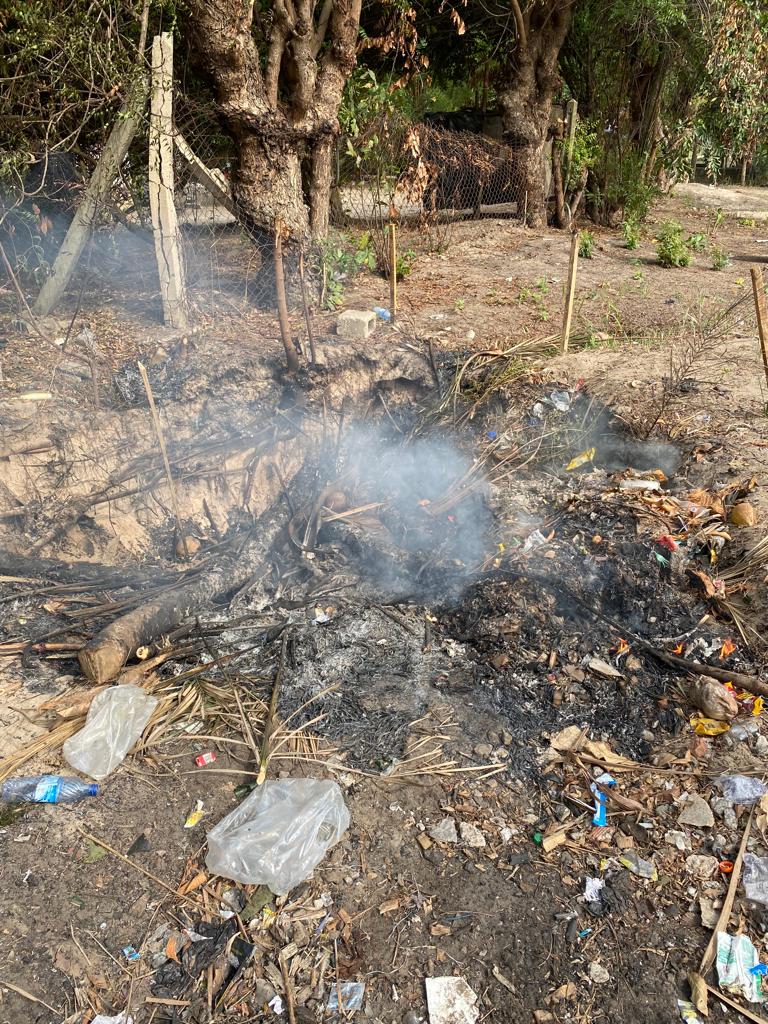
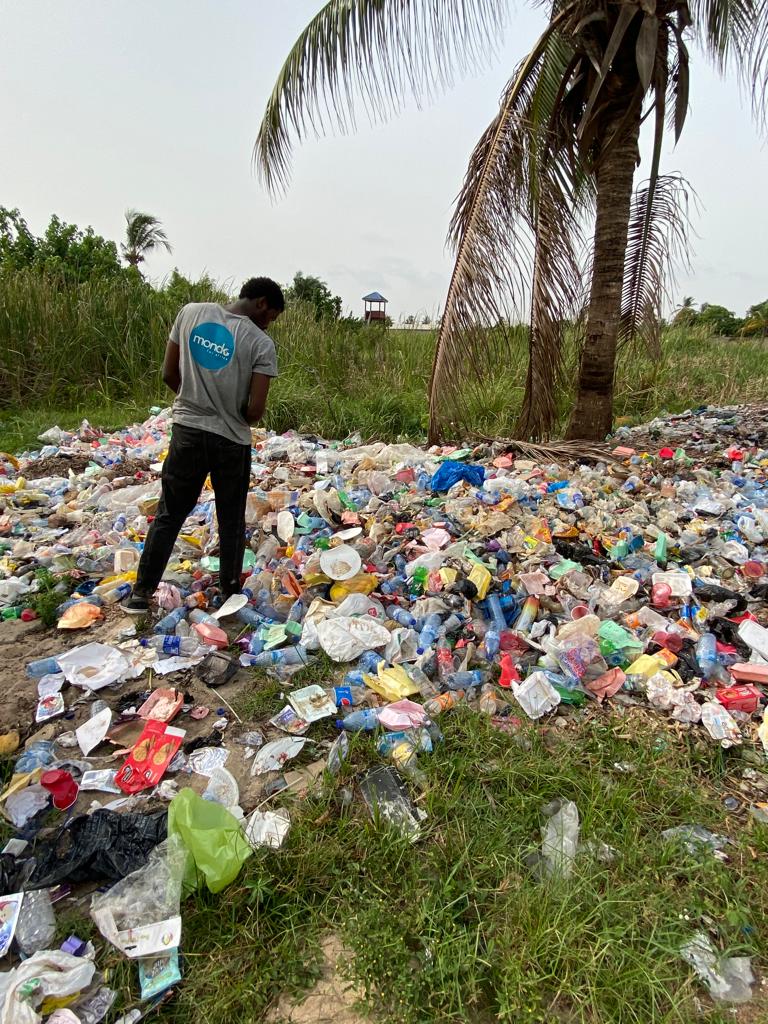
Uncontrolled burning practices and improvised dumps found by our team on the shores of Lagos
The problem of plastic in developing countries
Plastic is becoming a significant problem in many developing countries due to several interconnected factors.
Firstly, inadequate waste management systems lead to the improper disposal of plastic waste. This inappropriate system finds its origin in the exaggerated and chaotic growth of cities, which has prevented governments from efficiently collecting and treating waste.
Consequently, this waste often ends up in landfills, rivers, and oceans, causing severe environmental damage by polluting water bodies, harming wildlife, and disrupting ecosystems.
Economic factors also play a role, as plastic is often a cheaper option compared to alternatives, despite its environmental and health costs. This has generated a perverse incentive for the accumulation of plastic materials in the environment.
At the end, the lack of recycling infrastructure further complicates efforts to manage plastic waste effectively. These combined factors make plastic pollution a growing and complex issue in many developing nations.
The solution for plastic pollution in developing countries: a question of perspective
Several studies have been carried out in countries such as Egypt, India, Australia and the USA, where plastic waste has been converted into other products. In fact, our own work at Mondo4Africa has been a field of experimentation in the transformation of used plastic and we have found different potential solutions to the plastic problem in developing countries.
For example, we have experimented with transforming HDPE into various instruments and tools using ovens, electric irons, and molds. The malleability of plastic allows us to adapt it and replace tools or components as needed, saving us the time to purchase or search for them.
In fact, there are various developments in transforming HDPE, among other plastics, into components that can replace the material used for 3D printing, which would allow the plastic used to be used directly in thousands of new components.
On the other hand, and from a more structural solution point of view, there are enormous benefits in using plastic waste as a binding agent (cement replacement) to produce more flexible and durable HPB, floor tiles, and roof tiles, while also being an alternative way to recycle plastic waste (Behera, 2018).
A developing country like Nigeria is currently undergoing rapid urbanization and industrialization and as a result, many infrastructure developments are taking place. These developments come with problems such as shortage of building materials, high cost of construction due to shortage of cement and other building materials.
Also, concrete block building materials are expensive so people with low incomes especially in developing countries like Nigeria cannot afford such materials for better housing (Delz, 2011). The problem is not only the cost but also the long production, construction, transportation, availability and environmental degradation times of the materials.
So what would happen if we used building with materials as a solution to plastic pollution?
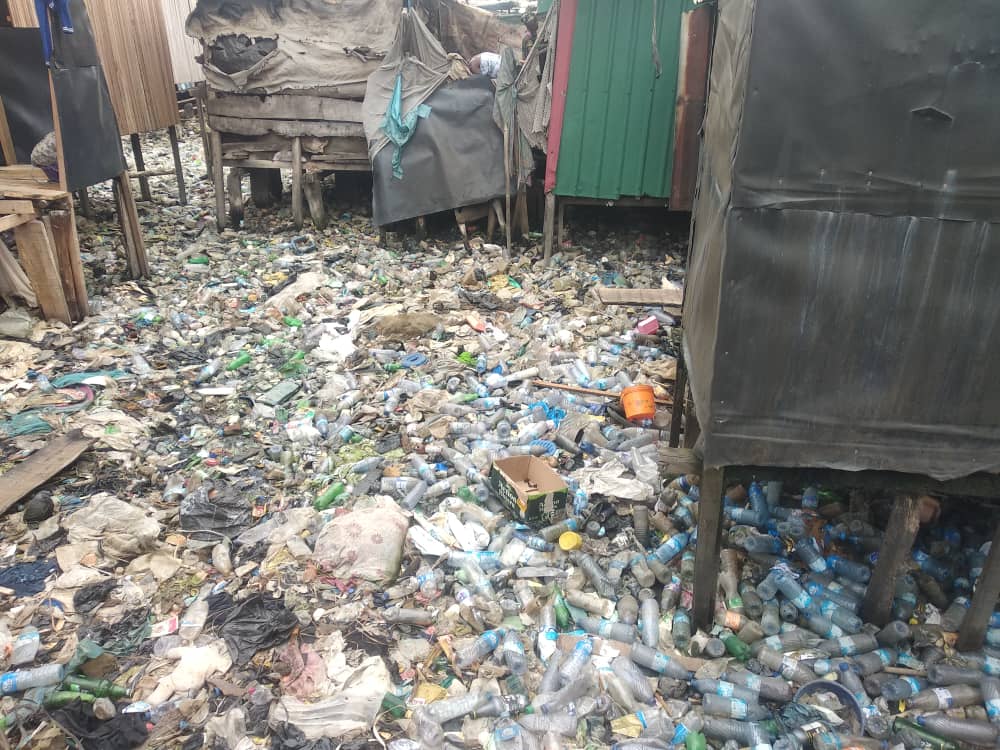
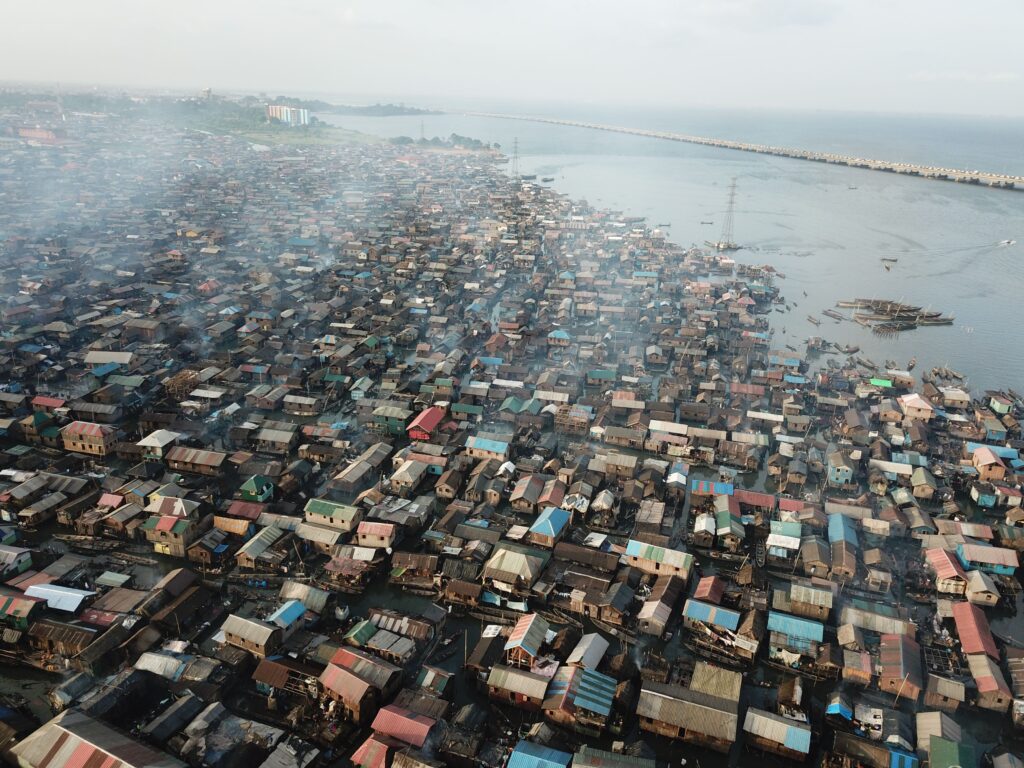
The high construction and land costs cause some communities (for example, Makoko, in the images) to expand, reclaiming land from the sea using their plastic and organic waste, with the consequent problems of public health and pollution.
THE USE OF PLASTIC AS A CONSTRUCTION MATERIAL IN DEVELOPING COUNTRIES
In a thesis research conducted by Kestride Estil, it assesses the plastic waste management and housing problems in Haiti. It explores the possibility of using plastic wastes to help in the construction of housing. It has shown that plastic wastes have been applied in production of walls, roof tiles and walkway pavements in Colombia and India (Estil, 2019). The study tries to implement the practices of waste management of Colombia and India in Haiti to introduce affordable housing system for the low income parts of the population.
In Netherlands about 40% of waste arises from construction firms. A study made by Lisane Moulders, showed the importance of recycle and reuse of construction and demolition wastes and the future assessment of waste recycling system of building materials (Moulders, 2013).
Also another study made in Nepal, examines the solid and plastic waste management and the steps used in the process. Some of the methods showed the proper collection process and disposal methods in the country (Banskota, 2015).
Finally this problem led the researcher to study management and reuse of these plastic wastes, which are non-decomposable wastes and which are now becoming biggest problem of our environmental health and hygiene, in the construction firm. Not much studies have been made in Nigeria or applications been made on plastic wastes reuse in constructions. So our work is developed with the intention to fill the theoretical and practical gap and the findings provide insightful reference for further studies and applications.
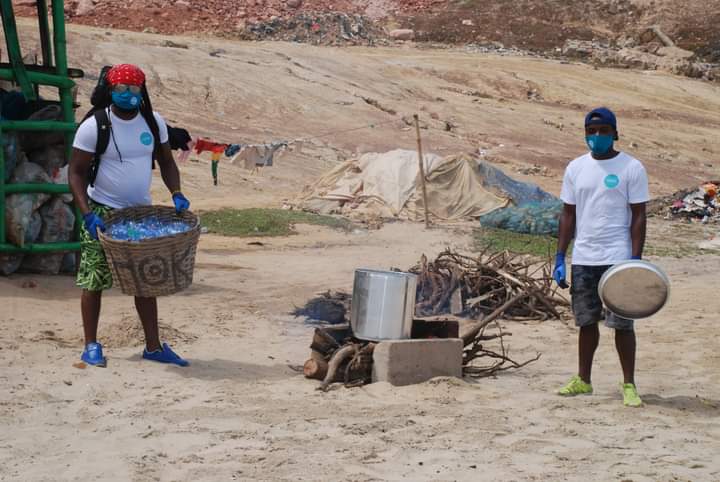

Our team in Ghana researching the transformation of plastic into building blocks
We work in developing technologies and new applications to find a solution for plastic pollution. we work so in the future we can say “there is nothing to be wasted”.

